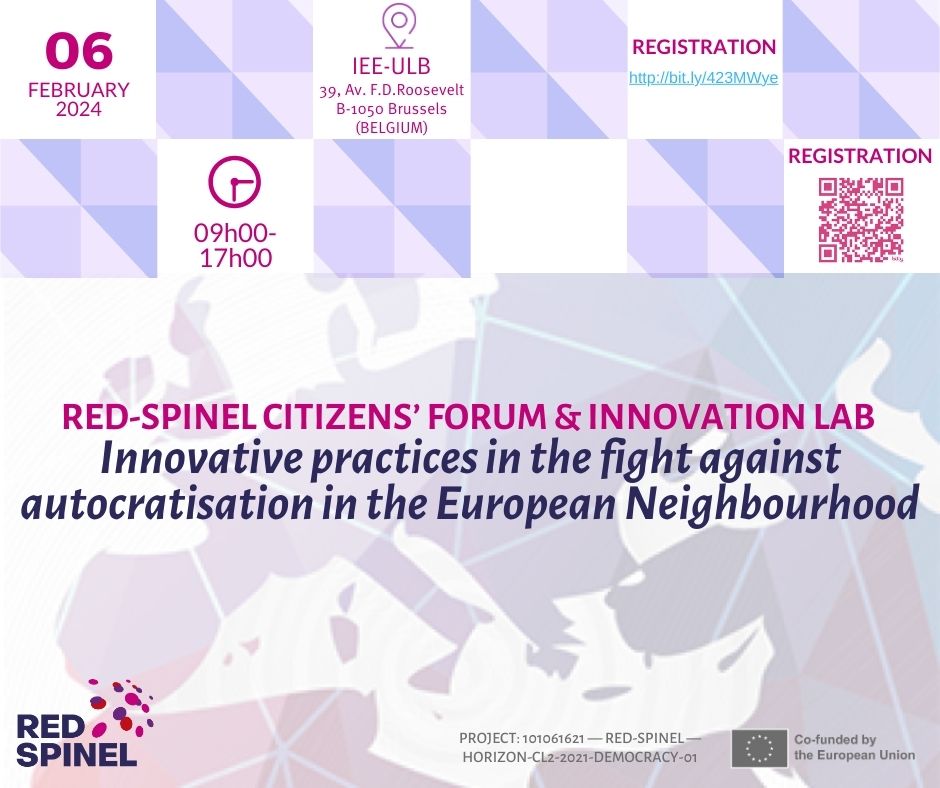Scope
This forum aims to explore the interplay between EU strategies, policies, instruments or actions, and autocratic politics and governance in the European Union’s neighbourhood. The forum will bring together citizens, researchers and experts, including EU and Member States level policymakers and civic leaders active in the European Neighbourhood, i.e. the EU’s Eastern Neighbourhood, Southern Neighbourhood and the Western Balkans. The participants will be invited to discuss the EU’s place in the fight against autocratisation in the EU neighbourhood by reflecting on the role, instruments, action, legitimacy, and scope for further intervention to support democracy. More specifically, the discussions will address issues pertaining to the EU’s role in supporting counter-autocratisation initiatives, civil society, electoral monitoring and assistance, anti-corruption drives and the defence of judicial independence. Given that citizens are the final ‘consumers’ of democracy and so final ‘beneficiaries’ of counter-autocratisation measures, this forum will place citizens and the EU’s capacity to empower citizens to defend democracy at the core of the discussions. Ultimately, this exercise will set the basis for an ‘innovation lab’ that will propose improvements and innovative practices that the EU could adopt to improve its response in the face of autocratisation dynamics in the EU neighbourhood.
Format
The forum will be organised over one day. In a first step, keynote speakers will address the audience in a plenary session to discuss a set of broad questions pertaining to the role of the EU in supporting liberal democracy and in countering autocratisation in the EU neighbourhood. The plenary session will be followed by discussions in break-out rooms, each addressing a specific question (see Agenda below). Participants will be invited to discuss the questions suggested below in the agenda by considering what has been done so far and what improvements could be envisaged to counter autocratisation in the European neighbourhood countries. Given the digital revolution and the challenges – and opportunities – that digital technologies bring about to liberal democracy, participants will also be invited to discuss the role played by new technologies under each category of questions. A moderator will lead the discussions in each break-out room, and a rapporteur will take notes.
After the discussions in the break-out rooms, a plenary wrap-up session will gather all participants, hear the briefings from the rapporteurs of each room, and discuss the overall findings.
Full Program – HERE
Registration
Attendance is free, but registration is mandatory
